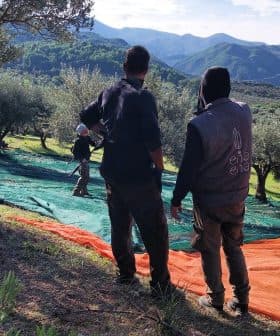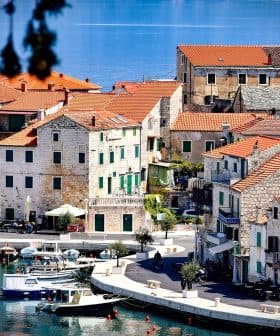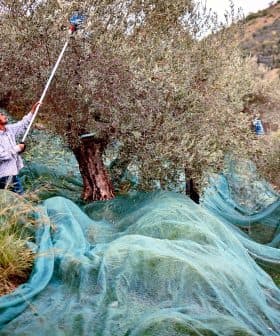Seven Countries Protest Adoption of Nutri-Score at European Meeting
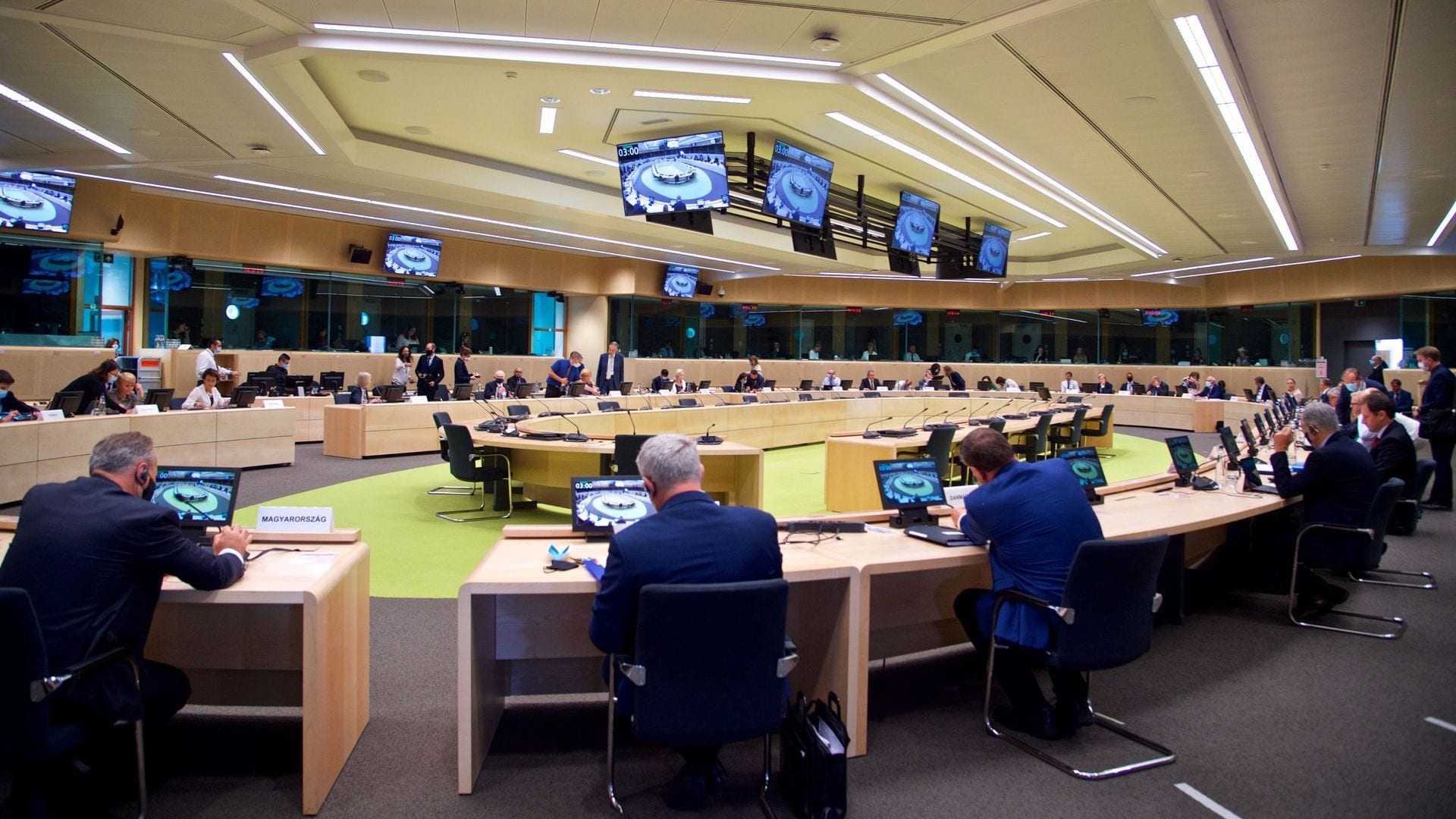
Italy and six other countries presented a non-paper at the European Union Agriculture and Fisheries Council as a rebuttal to the Nutri-Score system, proposing a new set of principles for a future E.U.-wide food labeling system. The non-paper emphasizes the need for informative, not prescriptive, front-of-pack labeling that considers daily nutritional intake and avoids penalizing foods consumed in small amounts, challenging the Nutri-Score system and fueling further debate on the issue.
The ongoing debate about which universal food labeling system the European Union will adopt took a new turn this week after seven countries, led by Italy, presented their so-called non-paper at the European Union Agriculture and Fisheries Council.
The non-paper is an official rebuttal to the French-backed Nutri-Score system and introduced a set of “desired principles” that the seven-nation bloc seeks to enshrine in any future E.U.-wide food labeling system.
(An E.U.-wide food labeling system) should take into account the daily nutritional intake, be understandable without using simplistic tools like colors on packages. Diet and nutritional health are concepts much more complex than an algorithm.
Italy, the Czech Republic, Greece, Latvia, Hungary, Cyprus and Romania also have asked that the E.U. take a new approach to the whole subject of front-of-pack labeling.
During its presentation, the Italian Minister of Agriculture, Teresa Bellanova, described the document as the basis for a new E.U.-wide scheme which, “should exempt products protected by recognized designations and geographical indications, but also products with a single ingredient, such as olive oil.”
See Also:Europe Labeling Systems Like Nutri-Score Could Save Lives, Researchers Say“It will have to be informative and not prescriptive,” she added. “It should take into account the daily nutritional intake, be understandable without using simplistic tools like colors on packages. Diet and nutritional health are concepts much more complex than an algorithm.”
The document seeks to pull the brakes on the front-of-pack nutritional labeling systems currently being adopted by some member states because, wrote the proponents, “established market-led solutions should not run ahead of the European Commission, governments and regulatory authorities in determining decisions that have major implications on public health, cultural values and the internal market.”
While the non-paper does not directly criticize Nutri-Score, the document does so implicitly.
“The system should not provide an overall evaluation of a specific food, but factual information on the individual nutrients contained in a product, in order to make sure that each consumer can choose according to his or her particular conditions and state of health,” the non-paper reads.
Nutri-Score is a front-of-pack nutritional labeling system that assigns both a score (from A to E) and a color to show the nutritional quality of any single package.
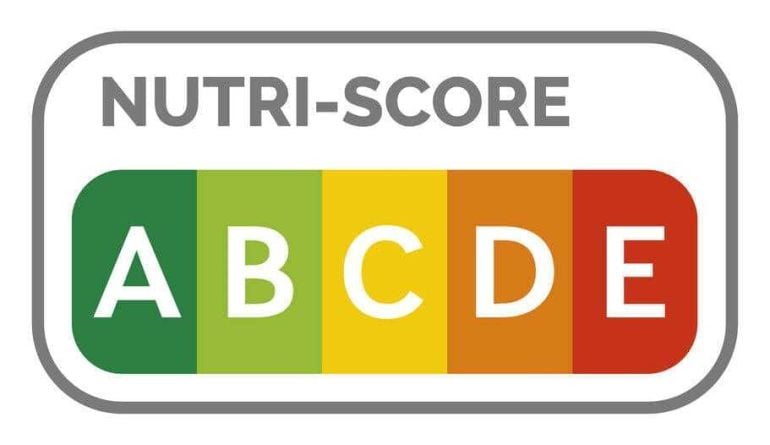
However, the coalition behind the non-paper wrote that a E.U.-harmonized front-of-pack nutritional labeling system scheme should consider the totality of daily nutritional intake “rather than a generic threshold of 100 grams or 100 milliliters, in order to avoid the penalization of those foods that are usually consumed in small amounts.”
Nutri-Score assigns a “C” to olive oil due to its fat content per 100 milliliters, a score which repeatedly has been called “discriminatory” by Italian food authorities.
Still, the French system is the front-runner among the food labeling systems being considered by the E.U. since it already has been adopted in France, Spain, Belgium, the Netherlands, Germany and, outside the Union, Switzerland.
Even though the E.U. recently approved the introduction of the Italian alternative front-of-pack nutritional labeling system known as Nutrinform Battery on a voluntary basis in Italy, the non-paper appears to imply that consumers already have the information they need, reminding member states that the current E.U. rules already provide for a complete list of nutritional information for 100 grams or 100 milliliters to be included in food packages.
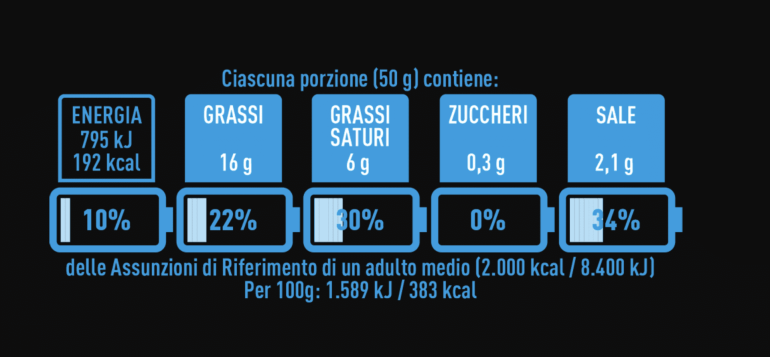
While in recent weeks the European farmers lobby COPA-COGECA expressed its “full support” of Bellanova’s position, several socialist and green members of the European Parliament have announced their support of the “Pro-Nutri-Score” initiative launched by some consumers associations.
Now the non-paper has fueled the debate even further, with the architect of the Nutri-Score, Serge Hercberg, strongly criticizing the Italian position in his most recent tweets.
“The strategy of Italy (and the agroalimentary lobbies) is clear, ” Hercberg wrote. “Nothing more than the unreadable and incomprehensible back-of-pack table of nutritional values.”
Hercberg, who accused Bellanova of denying science, has also attacked the Nutrinform Battery front of pack nutritional labeling system.
“Nutrinform is counter-intuitive, representing the nutrient content through the icon traditionally used to monitor the charge of a telephone, but curiously used in the opposite direction (the more the battery is ‘discharged,’ the better the nutritional quality of the food),” he tweeted.
For the head of the team that devised Nutri-Score, Nutrinform Battery “is complex and difficult to understand due to multiple and confusing information.”
As he did in the past, Hercberg has also stressed that “olive oil is not penalized by Nutri-Score. On the contrary, olive oil is graded with a C, which corresponds to the best possible score for added fats and better ranked than soya, sunflower, corn oils (D), coconut, palm (E) and butter (E). Totally consistent with the Mediterranean diet.”
Hercberg’s reaction to the position of the seven countries has been greeted with some skepticism in Italy.
Nutrinform is counter-intuitive, representing the nutrient content through the icon traditionally used to monitor the charge of a telephone, but curiously used in the opposite direction (the lower that level of the battery charge, the better the nutritional quality of food).
Francesco Capozzi, a professor at the agricultural and nutritional sciences department of the University of Bologna and founder of the Foodomics discipline, tweeted“who knows if Hercberg, father of the Nutri-Score, knows where the difference lies between nutrition and food science?”
“Judging from how he attacks Italy and whoever does not see the matter as he does, accusing them of an anti-scientific approach, I would say that he does not,” Capozzi added.
The heated debate is far from over.
“Here we go, at the meeting the lobbies were present,” Sylvie Guillaume, a French Member of the European Parliament (MEP) wrote in a statement co-signed by some of her colleagues. “Not in person, but through the voice of several ministers who have defended their interests at the expense of European consumers and therefore of the general interest. This is unacceptable!”
In a tweet, she called Nutri-Score “a precious tool for strengthening the power and the faculty of discernment in terms of consumer health. Europe must not give in to pressure.”
However, in a recent interview, Paolo De Castro, an Italian MEP, stressed how “the consumer should be informed in order to make his or her choice, not be conditioned by colors.”
He also highlighted that there will be sufficient time to find a compromise among the E.U. partners.
While farmers, olive oil producers, food companies and e‑commerce enterprises wait for the E.U. to make a decision on the subject, which the European Commission believes could be reached by 2022, many operators are following the national guidelines and adopting Nutri-Score.
Some producers and early adopters of Nutri-Score, such as Danone and Nestlé, have started marketing products highlighting their Nutri-Score classification as a plus. Some others have even begun to reformulate their food items in order to fare better in a world governed by Nutri-Score.
Which labeling systems do you prefer?
[wpforms_poll form_id=“84537” field_id=“1” label=“true” counts=“false”]





